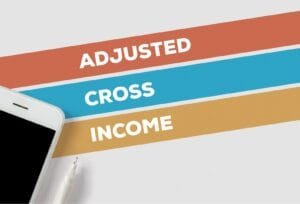Thinking of cashing out your 401(k)? Hold on—making that decision hastily could cost you a lot more than you think. If you’re not careful, you could lose up to 40% of your hard-earned retirement savings to taxes and penalties. The IRS is more than ready to take its share if you withdraw your 401(k) funds too early, well before the official retirement age. For instance, if you withdraw $50,000 before the eligible age, you could end up losing $20,000 or more due to taxes and penalties. That’s a significant portion of your savings, gone in an instant, all because of an early cash-out decision.
Your 401(k) account is designed to be tax-deferred, meaning you don’t pay taxes on your contributions or the investment growth until you withdraw the money. This tax-deferred nature allows your retirement savings to grow faster. However, the IRS imposes heavy penalties on early withdrawals, often making them a financial pitfall for those unaware of the consequences. When you cash out before retirement, it triggers a significant taxable event. The IRS loves this because it means a big payday for them at your expense, which is why it’s essential to understand the rules governing 401(k) withdrawals.
As you approach retirement, the temptation to access that money becomes stronger, but it’s crucial to have a well-thought-out tax strategy before pulling the trigger. By preserving your 401(k) and waiting until you reach the proper age, you allow your investments to continue growing tax-efficiently. Thoughtfully managing your withdrawals can help you avoid costly mistakes, ensuring that more of your retirement savings stays in your pocket and not the IRS’s.
Additionally, don’t expect your employer to guide you through the process. Many employers don’t actively inform you about early withdrawal penalties or in-service distributions, as your retirement savings benefit them too. That’s why understanding the rules around 401(k) withdrawals is critical. With the right strategies, you can access your funds without sacrificing a large portion of taxes and penalties.
In this blog by Brickell Financial Group, we will delve deeper into the implications of cashing out your 401(k). We will explore the various withdrawal options available to you, the tax consequences of each choice, and strategies to minimize your tax burden while accessing your funds. By equipping yourself with the right knowledge and understanding of the best practices, you can make informed decisions about your retirement savings and ensure that your money is working for you rather than against you. Join us as we break down the complexities of 401(k) withdrawals and help you navigate this critical financial decision.

Understanding 401(k) Plans
A 401(k) is a retirement savings plan offered by employers that allows you to invest part of your paycheck into tax-deferred accounts. These plans are designed to encourage long-term savings by delaying taxes until you withdraw the funds, ideally when you’re retired and may be in a lower tax bracket. This means that the money you contribute to your 401(k) can grow without being taxed immediately, allowing you to accumulate wealth over time. The funds grow through various investments like stocks, bonds, and mutual funds, providing the potential for significant growth over the years. However, it’s crucial to remember that while the growth is tax-deferred, it is not tax-free. When you eventually withdraw funds from your 401(k), you will owe income tax on the amount you take out, which can impact your overall retirement strategy.
While 401(k)s offer many benefits, it’s essential to understand that your employer isn’t necessarily incentivized to teach you how to access these funds early or to distribute them smartly. Employers primarily focus on encouraging you to save for retirement, and they are not required to inform you about strategies like in-service withdrawals or the intricacies of the tax code. This lack of guidance can lead to costly mistakes for employees who are unaware of their options.
That’s why it’s vital to educate yourself about the rules governing 401(k) plans, especially if you’re considering withdrawing funds while still employed. Understanding the potential penalties for early withdrawals and knowing how to effectively manage your withdrawals can help ensure that you maximize your retirement savings. By being informed, you can make better financial decisions that align with your long-term goals and ensure that your hard-earned money continues to work for you.
Can You Cash Out Your 401(k) While Still Employed?
If you’re considering cashing out your 401(k) while still employed, it’s important to understand the rules and potential consequences that come with it. While it is possible to access your 401(k) funds, doing so requires careful consideration of your options and the impact on your retirement savings.
Eligibility to Cash Out
Yes, you can cash out your 401(k) while still employed, but there are specific situations in which this is allowed. The two primary methods for accessing these funds are in-service withdrawals and 401(k) loans, each of which has its own set of rules, advantages, and potential pitfalls.
In-service withdrawals allow employees, typically those over age 59½, to begin withdrawing funds from their 401(k) without facing early withdrawal penalties. This can be an appealing option for those who need immediate access to cash while still working. However, it’s crucial to note that not all employer-sponsored plans offer in-service withdrawals. Additionally, while you can avoid the 10% early withdrawal penalty, you will still be responsible for paying income taxes on the amount withdrawn, which can lead to significant tax liabilities depending on your overall financial situation. There are also exceptions to the 10% penalties such as for qualified first-time homebuyers, unreimbursed medical expenses over 7.5% of AGI, in-plan rollovers, and terminal illness.
401(k) loans are another option for accessing your retirement savings without incurring penalties. These loans enable you to borrow from your own 401(k) to pay it back over time. The maximum loan amount is typically the lesser of $50,000 or 50% of your vested account balance. If your vested balance is below $10,000, you can borrow up to $10,000.
However, there’s a crucial caveat: if you fail to repay the loan according to the agreed terms, the unpaid balance will be treated as a taxable distribution. This means it will be subject to income tax, and if you’re under the age of 59½, you could also incur a 10% early withdrawal penalty. Furthermore, if you leave your job before fully repaying the loan, many plans require you to pay back the remaining balance immediately. If you cannot repay, the outstanding amount becomes taxable, which can create a substantial financial burden.
Penalties and Taxes
One of the most significant considerations when cashing out your 401(k) early is the associated penalties and taxes. If you cash out your 401(k) before reaching age 59½, you’ll face a 10% penalty on top of owing income tax on the entire amount withdrawn. This could result in losing a substantial portion of your savings to taxes and penalties. For instance, withdrawing $100,000 could easily lead to paying $30,000 or more to the IRS, depending on your tax bracket and the specific penalties applicable to your situation.
The key takeaway here is that early withdrawals from a 401(k) are not just about accessing your funds—they come with serious financial consequences. While there are exceptions to the penalty, such as for permanent disability or certain medical expenses, these situations are often limited and may not apply to everyone.
Before deciding to cash out your 401(k), it’s crucial to evaluate your financial situation and explore all available options. Consider whether an in-service withdrawal or a loan is the most suitable choice for your needs. Additionally, you may want to consult a financial advisor to fully understand the implications of your decision and to ensure that you are making the best choice for your long-term financial health.
While it is possible to access your 401(k) while still employed, doing so requires a thorough understanding of the rules, potential penalties, and tax implications involved. By being informed and cautious, you can protect your retirement savings and make choices that align with your long-term financial goals.

When Can You Withdraw from 401(k)?
When considering when you can withdraw from your 401(k), it’s essential to understand the rules set by the IRS and your specific plan. The general guideline states that you can make penalty-free withdrawals from your 401(k) once you reach the age of 59½. At this point, the 10% early withdrawal penalty no longer applies. However, it’s important to note that the funds you take out will still be taxed as ordinary income. This means that while you can access your money, you should be prepared for the tax implications that come with it.
In addition to reaching the age threshold, some plans offer in-service distributions, which allow you to take money out of your 401(k) even if you are still employed. This can be beneficial for those who need to access funds before retirement without incurring the penalties associated with early withdrawals. However, just like regular withdrawals after age 59½, taxes will still be owed on these distributions. Be sure to check with your plan administrator to understand if this option is available to you.
If you are facing a financial crisis, you might qualify for a hardship withdrawal. This type of withdrawal can be taken for specific reasons, such as medical expenses, funeral costs, or purchasing a primary residence. However, it’s crucial to note that even if you qualify for a hardship withdrawal, you will still be liable for taxes and potential penalties on the withdrawn amount. This means that while you may be able to access funds earlier, the tax implications remain significant, and you must consider whether this is the best course of action.
At Brickell Financial Group, we understand that withdrawing from your 401(k) is a significant decision that can impact your financial future. Our team of financial professionals is here to help you navigate the complexities of your retirement plan, ensuring you fully understand your options, including when you can take money out of your 401(k) and the implications involved.
Additionally, remember that any money you withdraw from your 401(k) reduces what’s available for your retirement. This can have a long-lasting impact on the size of your nest egg. Given the potential long-term consequences, it’s wise to carefully evaluate your financial situation and explore all available options before deciding to withdraw funds from your retirement account.
In summary, knowing when you can withdraw from your 401(k) is vital for making informed financial decisions. Whether you’re considering in-service distributions or hardship withdrawals, understanding the implications of taking money out of your 401(k) is essential to ensure your financial security in retirement. Always consult with a financial advisor or your plan administrator for personalized advice tailored to your specific circumstances. At Brickell Financial Group, we are dedicated to helping you make the best choices for your financial future.
How to Withdraw Money from 401(k)
Withdrawing money from your 401(k) while still employed can feel overwhelming, but the experts at Brickell Financial Group are here to simplify the process for you. The first step is to connect with your plan administrator to initiate a distribution or loan request. Remember, each 401(k) plan has its own specific rules and procedures, so it’s essential to familiarize yourself with your plan’s guidelines.
When you’re ready to withdraw funds, you’ll generally need to complete forms detailing your reason for the withdrawal. Your options include in-service withdrawals, loans, or hardship distributions. If you’re considering accessing your 401(k) before retirement, it’s crucial to understand the nuances of each choice. For instance, if you’re over 59½, an in-service withdrawal allows you to access your funds without incurring penalties. Alternatively, a hardship withdrawal may permit earlier access under specific circumstances, such as medical emergencies or educational expenses.
If you decide to apply for a hardship withdrawal, be prepared to submit supporting documentation to justify your request. This may include medical bills, tuition invoices, or other relevant paperwork demonstrating your financial need. The plan administrator will review your request to ensure it complies with IRS regulations and your plan’s requirements.
Once your request is approved, the funds will usually be disbursed as either a lump sum or a series of payments, depending on your plan’s rules. However, it’s important to note that taxes will be withheld from the distribution, meaning that the amount you actually receive will be less than what you initially withdraw. For example, if you withdraw $10,000, expect a portion to go towards taxes, resulting in significantly less cash in hand.
Moreover, withdrawing from your 401(k) reduces your retirement savings. Each withdrawal has a long-term impact on your nest egg, potentially compromising your financial security during retirement. Therefore, it’s crucial to carefully evaluate your financial situation before deciding to pull money out of your 401(k).
The knowledgeable professionals at Brickell Financial Group can guide you through these choices, providing valuable insights throughout the decision-making process. With our expertise, you can confidently approach your withdrawal with a well-informed strategy that safeguards your retirement savings while addressing your immediate financial needs. Together, we can ensure you’re making the best choices for your financial future.

Alternatives to Cashing Out 401(k)
If you’re tempted to cash out your 401(k), it’s essential to weigh the consequences carefully and consider alternatives that can help you avoid hefty taxes and penalties. Taking money out of your 401(k) early can lead to significant financial setbacks, so exploring different options is vital for maintaining your retirement savings.
401(k) Loans are one viable alternative. These loans allow you to borrow from your retirement savings without triggering taxes or penalties, as long as you repay the loan according to the plan’s terms. You can typically borrow up to 50% of your vested balance, with a maximum of $50,000. However, be cautious—any unpaid amount will be taxed as a distribution, and if you’re under 59½, you may also face penalties. Failure to repay the loan can jeopardize your retirement savings and result in unexpected tax consequences.
Another option is Hardship Distributions. If you’re facing financial difficulties due to medical expenses, funeral costs, or a qualified first-time home purchase, your plan may allow for a hardship withdrawal. While this can provide immediate relief, it’s crucial to understand that these withdrawals are permanent; the money you take out won’t be available when you retire. Additionally, you’ll owe income taxes on the amount withdrawn, and depending on your age and specific circumstances, you could face penalties as well. Therefore, it’s essential to consider the long-term implications of withdrawing funds under these circumstances.
Home Equity Loans present another potential solution, especially if you own a home. These loans typically offer lower interest rates compared to personal loans, and by opting for a home equity loan, you can avoid depleting your 401(k) balance. Using the equity in your home allows you to access the cash you need while preserving your retirement savings for the future. This approach can provide financial flexibility without the risks associated with cashing out your retirement account.
If you find yourself asking, “Can I take money out of my 401(k)?” it’s crucial to first explore these alternatives. Cashing out an IRA after 60 may seem more feasible since the penalties are reduced, but even then, the tax implications can be significant. By considering other options like loans, hardship withdrawals, or home equity loans, you can preserve your retirement savings while still addressing your immediate financial needs.
Before making the decision to cash out your 401(k), take the time to evaluate these alternatives. Making informed choices can help safeguard your financial future and ensure that your retirement savings remain intact.
What Happens to Your 401(k) When You Quit?
When you leave your job, understanding what happens to your 401(k) is essential for making informed financial decisions. You have several options for managing your 401(k), each with its implications.
Roll it into an IRA: One of the most favorable options is to roll your 401(k) into an Individual Retirement Account (IRA). This move keeps your retirement funds tax-deferred, allowing your savings to continue growing without incurring penalties. By rolling over your 401(k), you gain access to a broader range of investment options compared to most employer-sponsored plans. Additionally, an IRA typically offers more flexibility in terms of investment strategies and withdrawal rules, making it a popular choice for those looking to optimize their retirement savings.
Leave it with your former employer: Another option is to leave your 401(k) with your former employer. Many companies allow you to keep your account active even after you leave the organization. However, it’s important to note that this could limit your investment options and may come with administrative fees. Depending on the plan’s specifics, you might not have the same control over your investments or the ability to make changes. Moreover, it’s crucial to keep track of your account with your former employer to avoid losing track of your retirement funds.
Cash it out: While cashing out your 401(k) is an option, it’s often considered the least favorable due to the financial consequences. If you choose to withdraw the entire balance, this will trigger taxes on the distribution. Furthermore, if you’re under 59½, you’ll face an additional 10% early withdrawal penalty, which can significantly reduce the amount you receive. This option can deplete your retirement savings quickly, leaving you with less financial security for the future.
Another important consideration is how long a company can hold your 401(k) after you leave. While there is no specific time limit on how long they can keep your funds, you should review your plan’s rules and contact your former employer for clarity. Typically, companies will maintain your 401(k) until you decide to make a move, whether that’s rolling it over or cashing it out. However, it’s advisable to take action sooner rather than later to avoid potential complications.
Ultimately, what happens to your 401(k) when you quit can have lasting implications for your retirement planning. By understanding your options—rolling it over into an IRA, leaving it with your former employer, or cashing it out—you can make a choice that aligns with your long-term financial goals and ensures that your retirement savings remain intact. Taking proactive steps can help secure your financial future and provide peace of mind as you transition to the next chapter of your career.
Making Informed Decisions About Your 401(k)
In conclusion, cashing out your 401(k) while still employed might seem like a quick fix to immediate financial concerns, but it’s essential to recognize the substantial risks involved. The potential for losing a significant portion of your hard-earned savings to taxes and penalties makes it crucial to weigh your options carefully. Understanding the implications of withdrawing from your retirement account is vital for avoiding costly mistakes that could impact your future.
While it’s possible to access your 401(k) through in-service withdrawals or loans, each of these options comes with specific advantages and drawbacks. In-service withdrawals can provide immediate cash flow for individuals over 59½, but they still incur tax liabilities. On the other hand, loans may offer flexibility, yet they can create unexpected tax consequences if not repaid promptly. Premature withdrawals can diminish your retirement nest egg, threatening your long-term financial security. Therefore, it’s wise to evaluate your circumstances and explore alternatives, such as home equity loans or other financing options.
As you navigate these complex decisions, we at Brickell Financial Group want to ensure you have the resources and knowledge to make informed choices about your retirement savings. Our experts are here to guide you through the various withdrawal options and help you create a strategy that minimizes your tax burden while protecting your long-term financial goals.
We pride ourselves on providing personalized advice tailored to your specific situation. This ensures that you fully understand what happens to your 401(k) when you leave your job and how best to manage your retirement funds. Whether you’re contemplating cashing out your 401(k) or considering alternatives, we’re committed to assisting you every step of the way.
Don’t leave your financial future to chance. Reach out to us today to schedule a consultation and gain valuable insights into your retirement planning. Together, we can devise a strategy that not only addresses your immediate financial needs but also secures your retirement savings for the future. Take control of your financial destiny now, and let us help you navigate the complexities of your 401(k) and beyond. Your retirement is too important to leave unplanned—let’s work together to ensure your financial success.
Written By: Pedro Gomez, CFP
Edited By: Marianne Tiamson
Brickell Financial Group Pedro: Brickell Financial Group LLC (BFG) does not provide legal or tax advice. The information herein is general and educational in nature and should not be considered legal or tax advice. Tax laws and regulations are complex and subject to change, which can materially impact investment results. Brickell Financial Group LLC cannot guarantee that the information herein is accurate, complete, or timely. BFG makes no warranties with regard to such information or results obtained by its use, and disclaims any liability arising out of your use of, or any tax position taken in reliance on, such information. Consult an attorney or tax professional regarding your specific situation.
The third-party trademarks and service marks appearing herein are the property of their respective owners.







